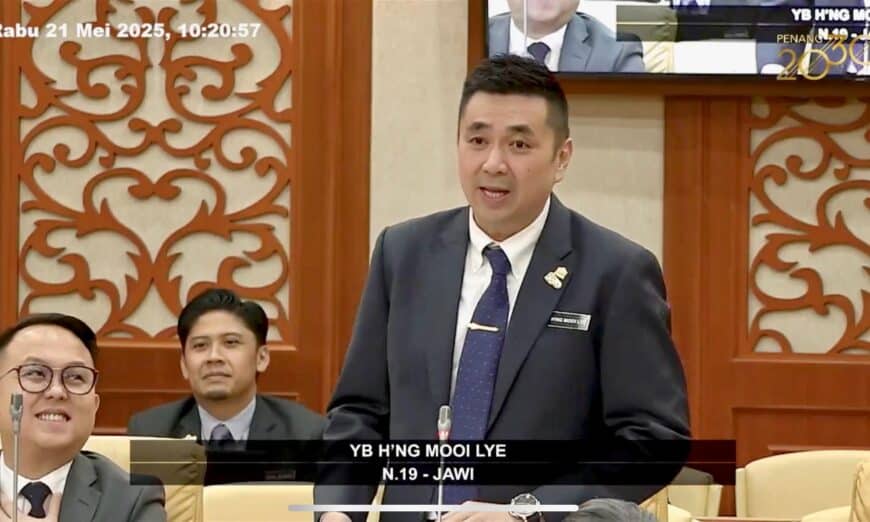THE issue of Centralised Labour Quarters (CLQ) for foreign workers has long been a contentious one and it was no surprise that it drew heated debate at the Penang State Legislative Assembly sitting today.
However, it was Mohamad Shukor Zakariah (PN–Pulau Betong) who found himself on the receiving end when he was advised to do his “homework” by state Local Government and Town & Country Planning Committee chairman Jason H’ng Mooi Lye (PH–Jawi).
During the Q&A session, Mohamad Shukor questioned the rationale behind the state government’s decision to proceed with a foreign workers’ hostel project in Teluk Kumbar, despite what he claimed was strong opposition from the local community.
He further asked how many local residents had supported the proposed dormitory, and what its potential positive and negative impacts were.
Additionally, he queried whether the government was placing the developer’s profits above public objections, and whether it would consider relocating the project to a more suitable site if given the chance.
In response, H’ng clarified that the project referenced by Mohamad Shukor had already been terminated in May last year by the developer, and that the decision had been publicly announced during a previous State Assembly sitting.
“I can’t say for sure whether he (Mohamad Shukor) attended the last session, but this information was already made public,” H’ng replied, adding pointedly that assemblymen should “do their homework” before raising such issues.
While the verbal exchange continued, Chief Minister Chow Kon Yeow intervened to correct Mohamad Shukor, pointing out that he had confused two separate labour dormitory projects in the area. Chow clarified that the project involving accommodations for 32,000 workers had already been withdrawn.
It is understood that there are two workers’ dormitory projects in the area. The one mentioned by Mohamad Shukor has been cancelled, while another project that can house 7,000 workers is still ongoing.
H’ng emphasised that all labour dormitory projects are subject to stringent scrutiny by the relevant authorities and must be supported by a Social Impact Assessment (SIA) before being granted planning approval by the local council.
He also defended the CLQ concept, arguing that it offers more benefits than drawbacks, especially compared to the current situation where foreign workers are dispersed across residential areas, leading to social challenges. A centralised housing model, he said, allows for better regulation and oversight.
According to H’ng, Penang currently has seven workers’ dormitory projects under construction, while nine have already received planning approval.
On Penang Island, 279 buildings have been permitted to operate as Temporary Labour Quarters (TLQ), mostly within residential areas. Only three are commercial buildings and one is a factory.
In Seberang Perai, 714 buildings have TLQ permits. These include 571 commercial units, along with 7 hotels, 78 factories, and 58 residential properties.
H’ng also revealed that Penang is currently home to 155,225 registered foreign workers, comprising 63,678 on the island and 91,547 on the mainland. The workforce includes 117,534 men and 37,691 women.
Bangladesh tops the list with 54,390 foreign workers. Below is the full breakdown of foreign workers by nationality:
- Bangladesh – 54,390
- Nepal – 35,126
- Indonesia – 29,793
- Myanmar – 24,370
- India – 5,011
- Philippines – 2,152
- Pakistan – 1,642
- Vietnam – 1,455
- Thailand – 862
- Sri Lanka – 229
- Cambodia – 156
- China – 22
- Laos – 16
- Uzbekistan – 1
Total: 155,225

